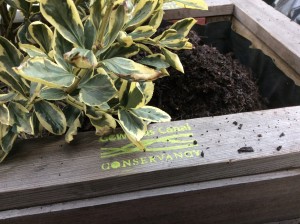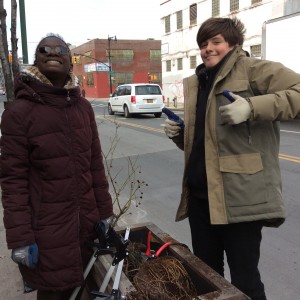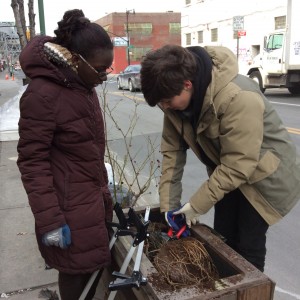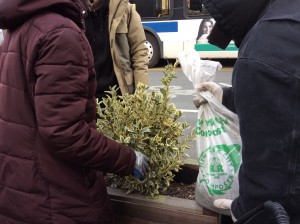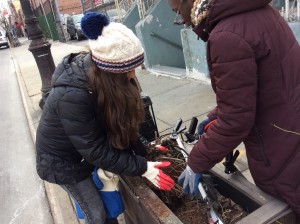On a frigid Thursday, my groupmates and I met up with Michael Wasserman. We met another member, and then we set to work with grabbers, bags, gloves, compost with worms, and pruners. A lot of the plants we saw were withered or perhaps dead, or perennials. We cleaned out different planters, and I now think that each planter was an indication of the people on that block. Some were well tended were we would only hurt, others were grossly dilapidated, choked with trash. The work was at once fast and slow-going: we filled the planters with new compost, but it took a while to clean, with rapidly numbing fingers. At one point I had to take a break because my fingers were numb, under two pairs of work gloves. The compost also froze; we started grinding the frozen chunks of compost against the wooden slats in order to spread them in a layer. I was also surprised when I had to painstakingly free a worm half frozen into a solid chunk of dirt. As we worked, we kept mostly silent. It felt awkward, but it left me open to think. During a fieldwork, the silence is not always something to fill. An important lesson is to know that sometimes conclusions about one’s work ethic and interaction with people can be drawn from how one reacts to silence. As far as I know about my work skill, I’m great with a pair of shears.
